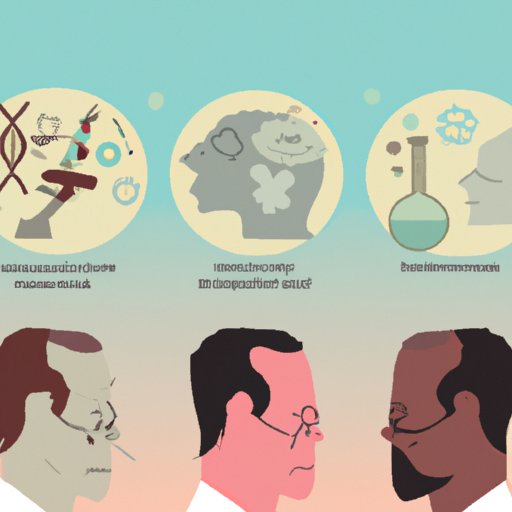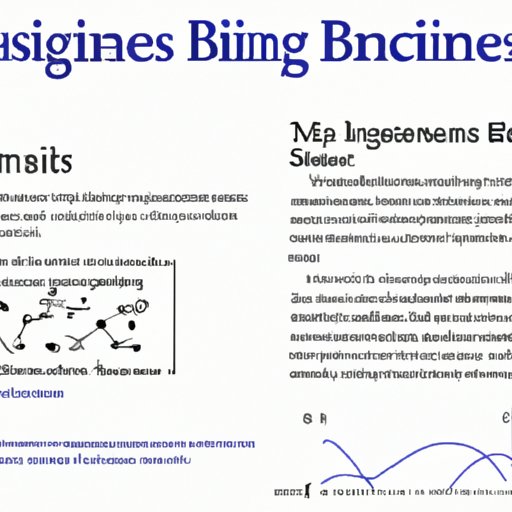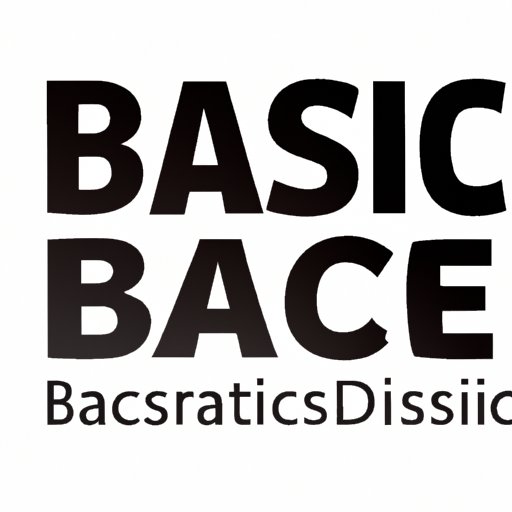Introduction
Bias is an inherent part of human nature and can be found in all aspects of life, including science. But what does biased mean in science? Simply put, bias refers to any preconceived notion or prejudice that affects the results of a study or experiment. This can include intentional bias, such as when a researcher has a vested interest in the outcome of an experiment, as well as unintentional bias, which occurs when a researcher’s expectations or assumptions about a particular topic affect the results of their research. Bias can also manifest as unconscious bias, where a person’s beliefs and attitudes unconsciously shape their interpretation of data or results. In this article, we explore the implications of bias in scientific research, as well as its potential sources.

How Biased Data Can Impact Scientific Discoveries
Biased data can have a significant impact on scientific discoveries. Examples of biased data include studies that are conducted with a predetermined outcome in mind, or those that focus only on certain groups or individuals. For example, a study may be conducted with the intention of proving a particular hypothesis, or it may be limited to a specific demographic group, such as women or people of a certain race. Such studies can lead to skewed results that are not reflective of the broader population.
The potential consequences of biased data can be far-reaching. For instance, if the results of a study are influenced by a researcher’s preconceived notions or expectations, then those results may be inaccurate or misleading. This can lead to incorrect conclusions being drawn about a particular phenomenon or issue, which can have serious implications for policymaking and other decisions that are based on the findings of the study. Additionally, biased data can lead to false positives or negatives, which can further complicate the interpretation of results.
A Closer Look at Sources of Bias in Scientific Studies
When looking at the sources of bias in scientific studies, it is important to distinguish between intentional and unintentional bias. Intentional bias occurs when a researcher has a vested interest in the outcome of a study and manipulates the results to confirm their desired outcome. Unintentional bias, on the other hand, occurs when a researcher’s expectations or assumptions about a particular topic affect the results of their research. Unintentional bias can be caused by a variety of factors, such as a lack of knowledge about the topic, a lack of understanding of the methodology used in the study, or simply a lack of experience.

Examining Unconscious Bias in Scientific Practices
Unconscious bias can also play a role in scientific research. According to a recent study by the National Academy of Sciences, “unconscious bias is defined as a form of implicit bias that occurs without our conscious awareness or intention.” It can manifest itself in various ways, including the selection of participants or research subjects, the results of experiments, and the interpretation of data. Unconscious bias can also be present in the way researchers design experiments or collect data, as well as the way they interpret and analyze the results.
Identifying potential sources of unconscious bias is key to avoiding it in scientific research. Common sources of unconscious bias include gender, race, ethnicity, age, and socio-economic status. Additionally, researchers must be aware of their own biases and strive to remain impartial throughout the course of their research. Finally, researchers should strive to create an environment that encourages open dialogue and critical thinking, as these can help to reduce the potential for bias.

Analyzing How Bias Can Influence Scientific Findings
It is important to understand how bias can influence scientific findings. If a researcher’s preconceived notions or expectations affect the results of a study, then the results may be skewed or inaccurate. Additionally, bias can lead to incorrect conclusions being drawn about a particular phenomenon or issue. For instance, if a study is conducted with the intention of proving a particular hypothesis, but the results are affected by the researcher’s bias, then the conclusion may be incorrect or misleading.
Biased data can also lead to false positives or negatives, which can further complicate the interpretation of results. For example, a study may report a correlation between two variables, when in reality there is no actual correlation. Additionally, biased data can lead to incorrect interpretations of data or results, which can lead to flawed conclusions.
Conclusion
In conclusion, bias is an inherent part of human nature and can be found in all aspects of life, including science. When it comes to scientific research, bias can manifest itself in various forms, from intentional to unintentional, as well as unconscious bias. It is important to understand the implications of bias in scientific research, as well as its potential sources, in order to avoid it. Additionally, it is essential to recognize how bias can influence scientific findings, as it can lead to incorrect conclusions being drawn about a particular phenomenon or issue.
In order to minimize the potential for bias in scientific research, it is important to ensure that all experiments are designed and conducted with objectivity and neutrality. Additionally, researchers should strive to create an environment that encourages open dialogue and critical thinking. Finally, researchers should be aware of their own biases and strive to remain impartial throughout the course of their research.
(Note: Is this article not meeting your expectations? Do you have knowledge or insights to share? Unlock new opportunities and expand your reach by joining our authors team. Click Registration to join us and share your expertise with our readers.)
